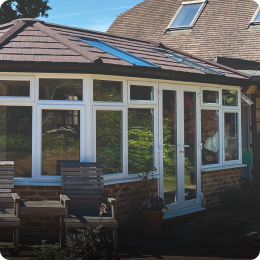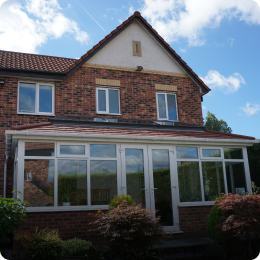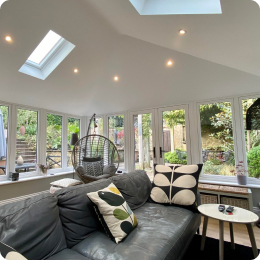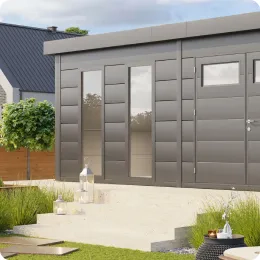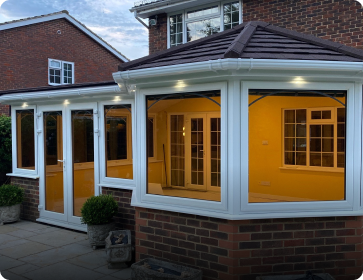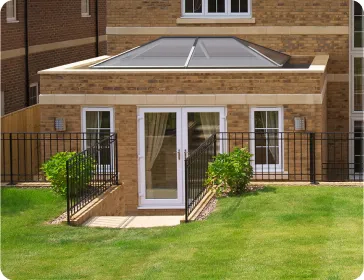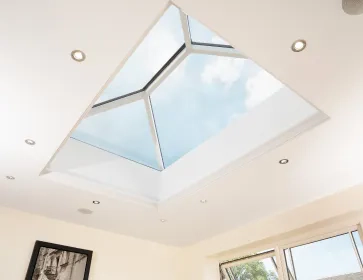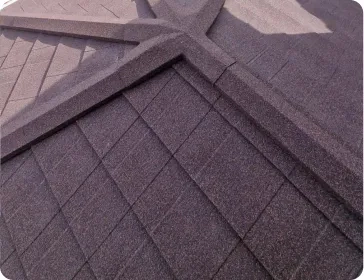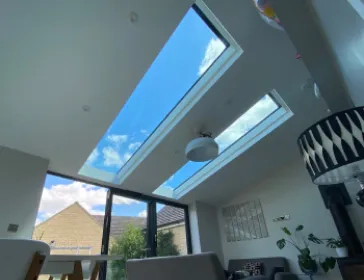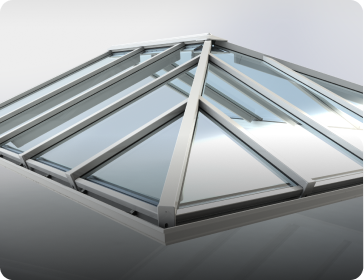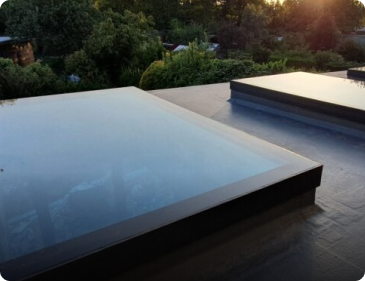
Let’s face it: the UK property market is no walk in the park. Whether you’re planning to sell your home or just want to keep its value intact, it’s essential to know what could be pulling down your property’s worth.
While most homeowners focus on what they can do to increase a property’s value, they often ignore things that can bring down the value of a house. Usually, it can be a case of what you need to maintain or repair, rather than what you can add.
So let’s dive into 12 key factors that can decrease the value of a house in the UK – and changes you can make to maintain or increase your home’s value.
1. Unfashionable Furnishings or Outdates Decor
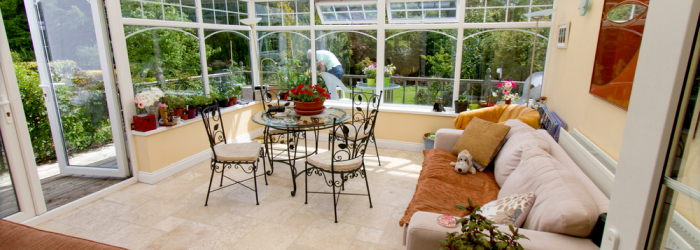
Picture this: you walk into a house with floral wallpaper straight out of the 70s, and avocado-green bathroom tiles. Not exactly inspiring, right? We all have our personal tastes, but let’s be honest – some people’s taste is, well, unique.
Outdated or overly personalised home decor can seriously reduce your property’s appeal and its value. While your personal tastes might be bold or unique, they might not align with current UK buyer trends, which often favour neutral and modern interiors.
Every few years, new styles emerge, and what was once stylish can quickly feel outdated. Similarly, if your decor is too niche or doesn’t make the best use of space, prospective buyers may see re-decorating as an extra cost and effort, leading to lower offers.
How to solve the problem
Consider refreshing your interiors with neutral colours and modern furnishings that appeal to a broad audience. Simple updates like giving the walls a fresh lick of paint, replacing old carpets, and updating fixtures can work wonders.
Start by assessing which rooms need a refresh. You don’t have to renovate your entire house at once – take it one room at a time. Begin gathering ideas for decor and furniture that align with current trends, or better still, consider classic, timeless styles that have broader appeal. If the job feels too big or you’re unsure where to start, getting help from an interior designer could be worth the investment.
2. Structural Damage
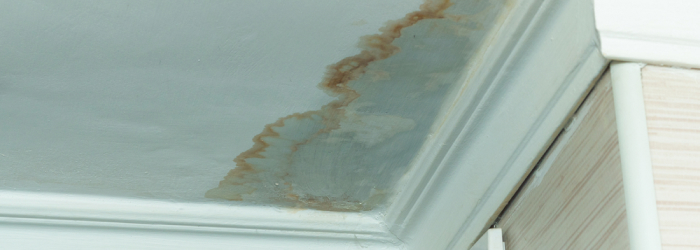
Structural damage is a major red flag for buyers and one of the most serious issues that can drastically reduce your property’s value. Cracks in the walls, a sinking foundation, or a leaking roof aren’t just eyesores—they’re potential money pits. And that means lower offers, if any at all.
While it might be tempting to ignore these problems, it’s always better to deal with them straight away. Often, one issue can lead to another, making repairs even more expensive down the line.
Estate agents will definitely take note of any structural issues during their valuation, and they’ll pass this information on to potential buyers.
There are many signs of structural damage, including:
- Termites
- Sagging or leaking roof
- Wall and ceiling cracks
- Uneven floors
- Damp subfloors
- Timber rot
- Crumbling concrete
- Ill-fitting doors and windows
- Exposed gaps between walls
Don’t forget about your outbuildings, like conservatories, extensions, and orangeries. Any structural damage there could also decrease your home’s value.
How to solve the problem:
Given the wide range of potential issues, it’s best to bring in a professional who can diagnose the problem and recommend the right solution. Prioritise repairs that offer the best return on investment, such as fixing foundational cracks or replacing a leaking roof. A small investment in repairs now can save you from taking a big hit on your sale price later. Plus, getting a professional inspection before listing your property can help address any structural concerns upfront.
3. Pets Around the House
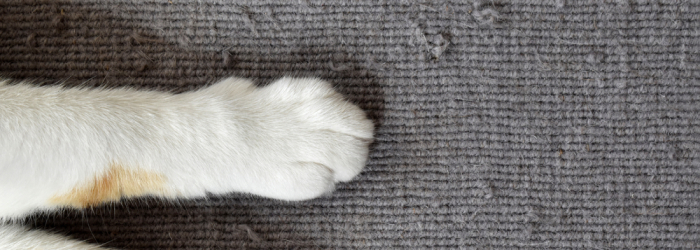
We love our pets, but let’s be real, they’re not always the best for our homes. It’s been estimated that pets can reduce home value by up to 10%. While your furry friend might be adorable, potential buyers might see scratched floors, chewed skirting boards and lingering odours as a downside.
Pet odour is often the biggest deterrent. Even if you’re used to it, a potential buyer could pick up on it immediately, and it can be tough and expensive to get rid of. Depending on how severe it is, you might even need to replace upholstery or furniture.
How to solve the problem:
Now, nobody’s suggesting you shouldn’t have pets, but it’s important to be mindful of how you manage them. If you’re planning to sell, ask a trusted friend who doesn’t have pets to give your home a sniff test—they’re more likely to pick up on odours you might not notice.
Make sure your home is spotless, and consider getting your carpets and upholstery professionally cleaned to eliminate any lingering smells or muddy paw prints. These steps can help ensure your home appeals to potential buyers.
4. Issues With the Area or Neighbourhood
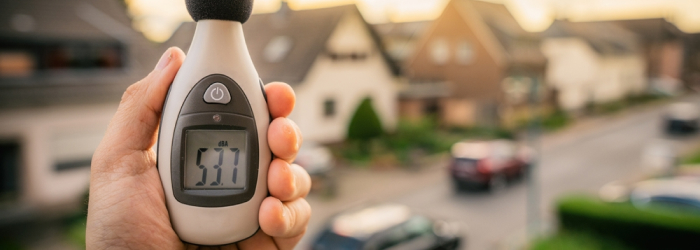
No matter how lovely your house is, the area you live in plays a big role in determining its value. Even a five-bedroom home can lose value if it’s located in an undesirable area. A neighbourhood in decline, which is characterised by increasing crime rates, poor upkeep, or declining local amenities, can severely impact property values.
Here are a few factors that can affect house prices in your neighbourhood:
- Buyer demographics: If your area is popular with commuting professionals and you own a large family home, your property might not appeal to the majority of buyers.
- Housing surplus: If a developer builds 50 similar houses right next to yours, you suddenly have a lot more competition.
- Closure of facilities: When public services, local employment, or amenities shut down, it can make your area less attractive to buyers.
- Low school ratings: Families often pay a premium to live in areas with good schools. If local schools have poor ratings, it could bring down your property’s value.
- Environmental and noise pollution: Living near factories, motorways, or railway lines can make your home less desirable, and these factors have become increasingly important to buyers.
How to solve the problem:
Unfortunately, many of these issues are beyond your control. However, you can stay active in your community to advocate for improvements and be involved in local discussions. While the results may take time, any positive changes can help protect your home’s value.
5. Economic Factors

Remember the banking crisis? The UK housing market took a hard hit, and it’s still recovering. Many homeowners have been left out of pocket or with mortgages they could no longer afford; you may have been one of those people. The housing market works on supply and demand, and if there’s an economic downfall, there isn’t a demand for people to buy houses. And if people aren’t buying homes, the value of your home could decrease.
Interest rates play a crucial role too. If the Bank of England raises the base rate, mortgage interest rates usually follow suit, which means higher payments. Rising costs force buyers to seek cheaper properties, reducing the demand for more expensive homes and causing their value to fall. The uncertainty surrounding Brexit has also left many homeowners and potential buyers concerned about the future.
What you can do:
While you can’t control the economy, you can make sure you’re on the best mortgage deal to protect yourself from rising interest rates. If selling isn’t viable during an economic downturn, you might consider renting out your property until the market improves.
6. Poor Energy Efficiency
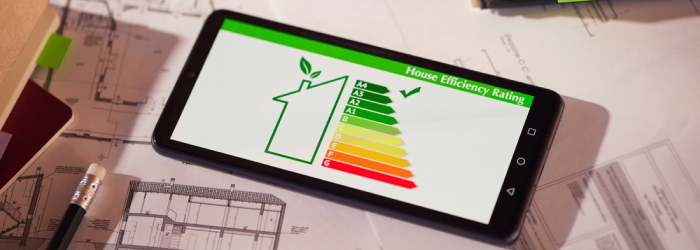
These days, energy efficiency is more than just a buzzword. Energy efficiency is becoming increasingly important to UK buyers, especially as energy costs rise. Homes with poor insulation, an old boiler, or low EPC (Energy Performance Certificate) ratings are less appealing and can be harder to sell, potentially lowering their value.
What you can do:
Improve your home’s energy efficiency by upgrading insulation, installing double-glazed windows, replacing your conservatory roof and ensuring your heating system is modern and efficient. These improvements can not only increase your property value but also make your home more attractive to eco-conscious buyers. It’s good for the environment and your wallet!
7. Lack of Kerb Appeal
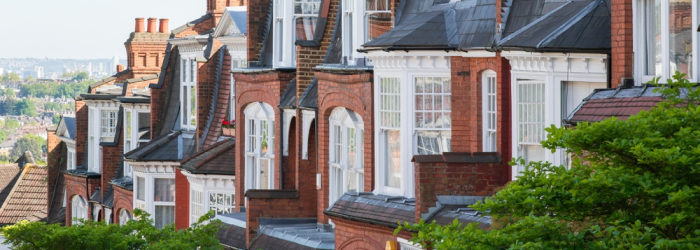
Imagine pulling up to a house with an overgrown lawn, peeling paint, and a rusty old gate. Not exactly welcoming, right? First impressions matter, the outside of your home is the first thing potential buyers will see and sets the tone for what’s inside. If it’s not up to scratch, it could lower your property’s value.
How to solve the problem:
Keep your garden tidy, repaint where needed, and maybe even add some potted plants to brighten up the entrance. These small touches can boost your home’s kerb appeal and make a great first impression.
8. Outdated Kitchens and Bathrooms
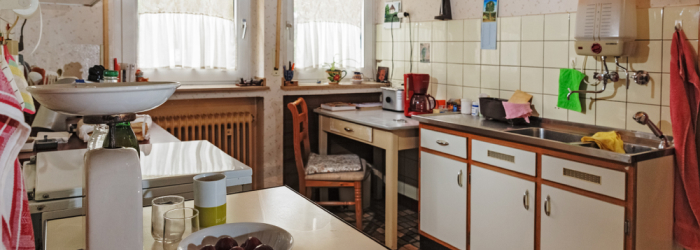
Kitchens and bathrooms are often deal-breakers for buyers, and it’s easy to see why. These rooms are the most used and scrutinised spaces in any home, and if yours are stuck in a time warp with old fixtures, worn-out tiles, or dated cabinetry, it could instantly put buyers off.
The kitchen is often considered the heart of the home, where people envision themselves cooking, entertaining, and spending time with family. If the space feels outdated or impractical, it can be hard for buyers to see its potential.
Bathrooms, too, are essential spaces. Buyers want them to feel like a place to relax and unwind, not somewhere that screams “expensive repairs.”
How to solve the problem:
You don’t need to break the bank with a full-scale renovation to make your kitchen or bathroom more appealing. Even small, cost-effective updates can make a world of difference and increase your home value:
- Update cabinet handles and drawer pulls: Swapping out old handles for sleek, modern designs can instantly freshen up the look of your kitchen or bathroom.
- Replace countertops: Countertops are one of the most prominent features in a kitchen, and upgrading to materials like granite, wood or quartz can add a luxurious touch without a full remodel.
- Retile: New tiles can completely transform a space. Consider neutral or classic designs that appeal to a wide audience.
- Refresh fixtures: Replacing dated taps, light fixtures, and showerheads with modern alternatives can make a big difference without the need for a full renovation.
- Paint or refinish cabinets: If your cabinets are structurally sound but just look tired, consider repainting or refinishing them instead of replacing them entirely. A fresh coat of paint can breathe new life into the space.
- Upgrade appliances: Energy-efficient and modern appliances not only add to the aesthetic appeal but also attract eco-conscious buyers and improve your home’s overall energy efficiency.
Tip: Focus on small but impactful changes that don’t require a massive budget. Buyers love seeing spaces that feel clean, fresh, and ready to use without needing a full overhaul. These minor upgrades can enhance the appeal of your home and help maintain or even increase its value. A modest investment in your kitchen and bathroom now can lead to higher offers and quicker sales down the road.
9. Outdated Conservatory
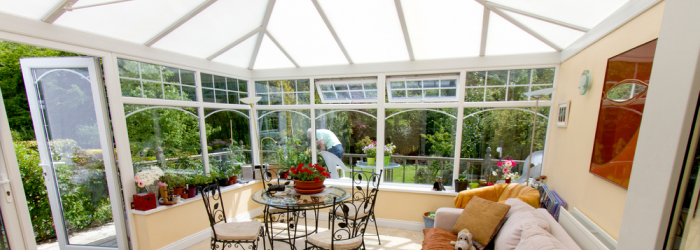
Does an Outdated Conservatory Devalue a House?
Conservatories have long been a popular feature in UK homes, offering extra living space and a seamless connection to the garden. However, if your conservatory is outdated, with old, inefficient glass, poor insulation, or a design that feels stuck in the past, it could detract from the value of your home. An outdated conservatory can appear more like an unappealing burden rather than a valuable asset, especially if buyers see it as a space they’ll need to renovate or replace.
How to fix it:
Instead of removing an outdated conservatory, consider giving it a modern update. Refurbishing the space can breathe new life into it and make it a selling point again:
- Consider a solid roof upgrade: Swapping out an old glass or polycarbonate roof for a solid, tiled roof can give the conservatory a more permanent, integrated feel. It’ll help with temperature control and make the space feel like a true extension of the home. Take a look at SupaLite’s conservatory roof range.
- Upgrade the glazing: Older conservatories are often fitted with single-glazed or inefficient glass, which can make the space too hot in summer and too cold in winter. Replacing it with double or triple glazing can improve energy efficiency and make the conservatory usable year-round.
- Improve insulation: Poor insulation is a common issue in older conservatories. Adding proper insulation to the walls, floor, and roof can help regulate the temperature, making the room more comfortable and appealing to buyers.
- Modernise the design: If the conservatory looks like it belongs in another decade, think about updating its style to match the rest of your home. Clean lines, contemporary colours, and a more streamlined design can make the space feel fresh and inviting.
Tip: Don’t write off your conservatory just because it’s outdated. With a few key improvements, it can be transformed into a space that enhances your home’s value and appeal. Buyers love the idea of additional living space, especially when it feels modern and functional, so investing in a refurbishment can go a long way toward maintaining or increasing your property’s worth.
10. High Property Taxes
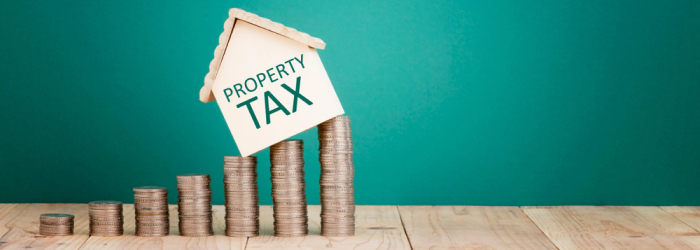
High property taxes can be a real turn-off for potential buyers, especially if they’re already stretching their budget. It’s not just the mortgage people think about when buying a home, they’re factoring in all the extra costs that come with homeownership, like council tax, maintenance, and utilities. So, if your property taxes are noticeably higher than similar homes in your area, buyers might look elsewhere for a better deal.
This is particularly tricky in areas where house prices have gone up quickly. While rising values might sound like a good thing, they often bring higher property taxes with them, which can price some buyers out of the market. Even if someone loves your home, the thought of paying more in taxes each year could make them reconsider, especially if other homes nearby come with lower tax bills.
How to solve the problem:
If your property taxes feel unfairly high, there are steps you can take to ease the burden:
- Appeal the assessment: If you think your home has been overvalued by your local authority, you can appeal the tax assessment. Start by researching how other properties in your area are being taxed and gather evidence to show that your home’s value may have been overestimated. Comparable sales data and professional appraisals can strengthen your case. If successful, appealing your assessment could lower your annual tax bill and make your home more appealing to buyers.
- Look for exemptions: Some homes qualify for tax relief or exemptions. For example, if your property is a listed building or you’ve made significant energy-efficient improvements, you might be eligible for a tax reduction. It’s worth researching what exemptions might apply to your property to help reduce ongoing costs.
Tip: Taking action to lower your property taxes can not only make your home more attractive to buyers but also save you money in the long run.
11. Nearby Repossessions
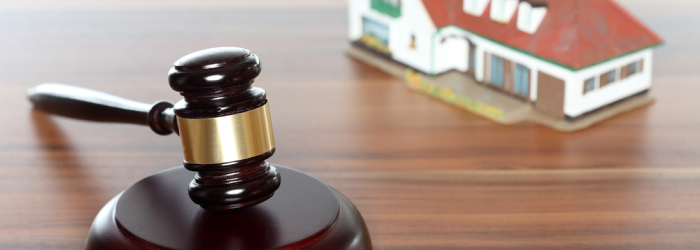
If there are repossessed properties near yours, it could be a problem. Repossessions often lead to poorly maintained homes, which can attract crime or vandalism and drag down the value of neighbouring properties.
What you can do:
Keep your property well-maintained to stand out. You might also want to engage with your community to encourage better upkeep of the neighbourhood.
12. Noise Pollution

Living near a busy road, a school, or a noisy pub can be a headache—and a potential value buster for your home. Excessive noise is a major turn-off for many buyers, and could lead to lower offers.
What you can do:
Consider soundproofing measures such as double-glazed windows or installing noise-reducing barriers in your garden. These improvements can help reduce the impact of noise and make your home more appealing to buyers.
13. Invasive Species (e.g. Japanese Knotweed)

Japanese Knotweed might sound like a minor issue, but this invasive plant can wreak havoc on your property – and your wallet. It’s notorious for damaging foundations and can even make it harder to get a mortgage.
Japanese Knotweed was imported into the UK in the 1850s and was favoured by gardeners because it resembled bamboo and grew everywhere. Nowadays, Japanese Knotweed causes various problems for UK homeowners.
Japanese Knotweed can grow up to 10cm in one day, and its aggressive growth means it can target weak structures in buildings, causing structural damage as the weed tries to grow through them. Its roots can be as much as 14 feet deep, and it can lay dormant for up to 20 years.
Local authorities often refuse planning permission on infested sites, and mortgage lenders may not lend on properties that are affected by it. In this video, The BBC explore how a family lost £250,000 on the value of their home.
What you can do:
- Cut the canes so they can’t regrow.
- Apply glyphosate weed killer.
- Wait seven days and dig out the weed with a pitchfork.
- Mow the plants down every week (if they’re on your lawn).
- Apply glyphosate twice per year.
- Contact a professional if the above doesn’t work.
If you suspect Japanese Knotweed or other invasive species on your property, seek professional help immediately. Early detection and management can prevent further spread and reduce the impact on property value.
14. Superstition

Believe it or not, some buyers might steer clear of your home because of superstitions. In the UK, house numbers like 13 or 4 are often seen as unlucky, and some people might not want to live near a graveyard or on a street with a spooky name.
How to solve the problem:
If your house number is seen as unlucky, consider applying for a house name instead. It’s a small change that could make a big difference to superstitious buyers.
Boosting Your Property Value
While it’s important to be aware of the things that can bring down your property value, there are also plenty of ways to increase it. For more tips on boosting the value of your home, check out our detailed guide on Things That Add the Most Value to a House.

